
First eLaw Conference: Law and/versus Technology
The first eLaw Conference held at Leiden University was a success and fostered timely discussions on the legal challenges and opportunities presented by digital technologies.
At the end of June 2024, the first eLaw Conference brought together 140 participants from four different continents. The two-day conference centred on the theme of ‘Law and/versus Technology’ and provided various avenues for in-depth discussions on the most pressing questions in the field of law and digital technologies. The conference was chaired by Dr Gianclaudio Malgieri, Associate Professor of Law at Leiden University. The programme committee included the entire eLaw Board and additional colleagues from within and outside the department.
Following a rigorous selection process, 40 out of 120 abstract submissions were organised into four tracks: AI Law and Governance, Privacy and Data Protection, Digital Vulnerability and Digital Platforms Regulations. This structure allowed participants to tailor their experience and follow the nuances of topics of particular interest.
Thursday, June 20
The conference featured a rich programme of institutional and academic experts, keynote addresses, panels and paper sessions. The Hans Franken Lecture, named after one of eLaw’s founders and former dean of Leiden Law School, was given by Professor Roger Brownsword (University College London). Professor Brownsword’s address delved into the intricate balance between leveraging the potential of digital technologies and upholding fundamental values and principles within governance frameworks, which was a key theme of the conference.
-
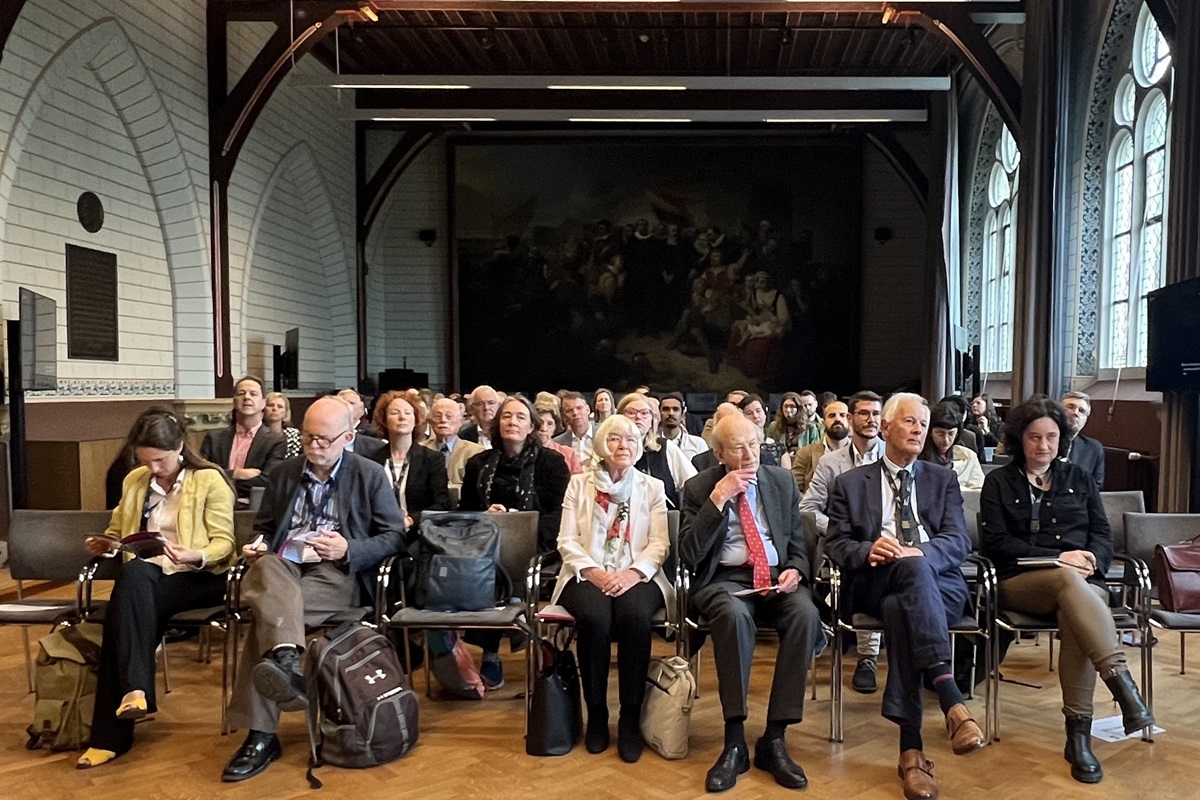
Professor Roger Brownsword (second from right) and Professor Hans Franken (third from right) -
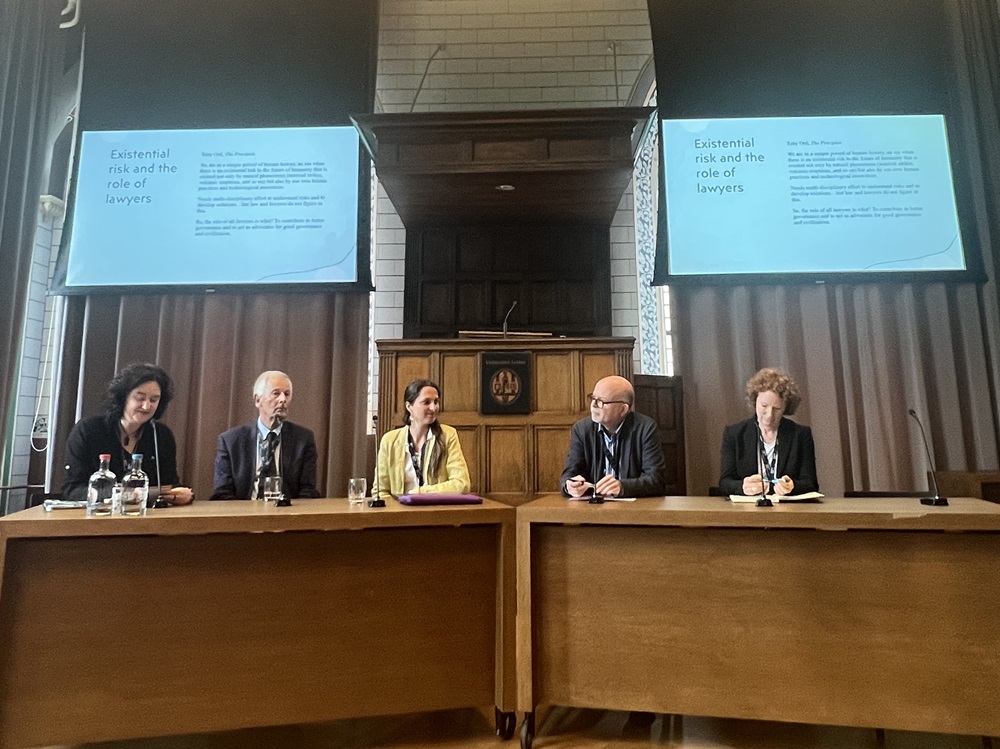
Keynote panel: 'Law and/versus technology' -

Paper session: Digital Vulnerability Exploitation -
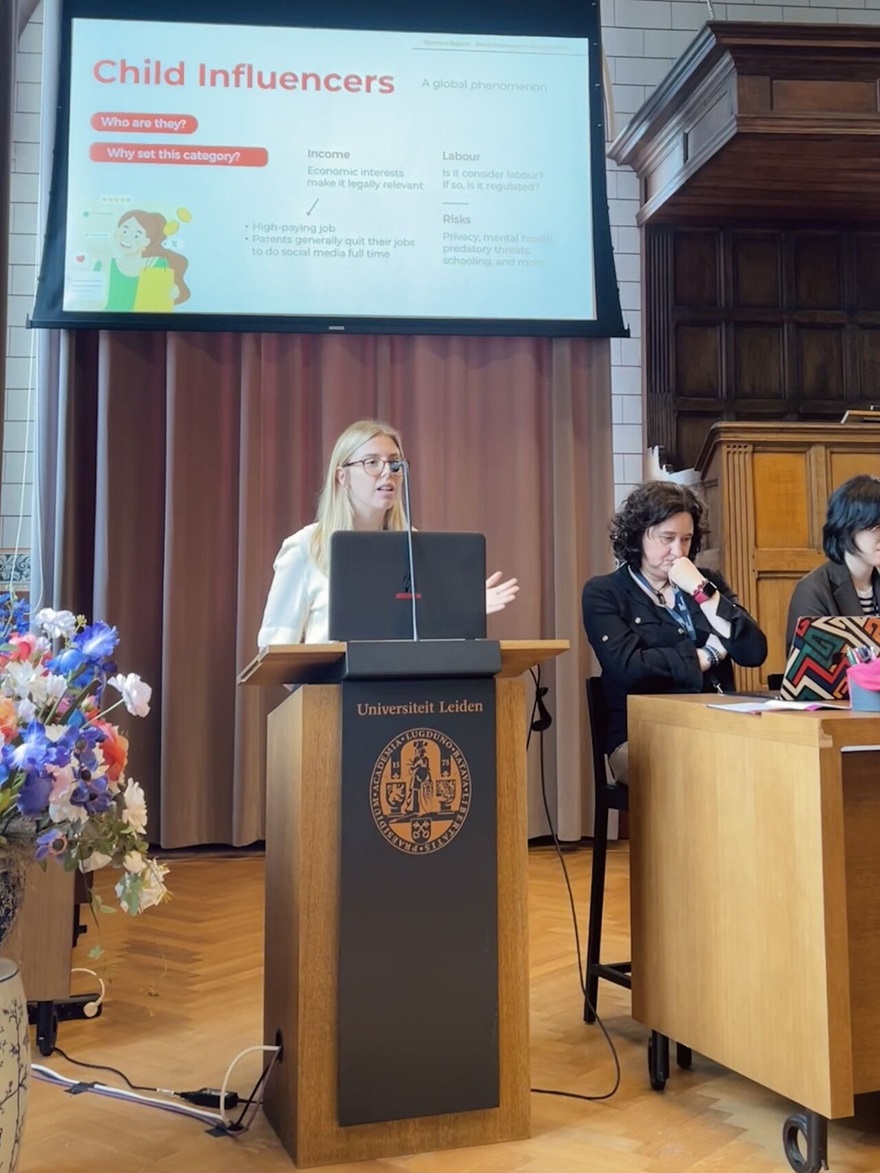
Paper session: Digital Vulnerability Exploitation (photo by Beatrice Balzola) -
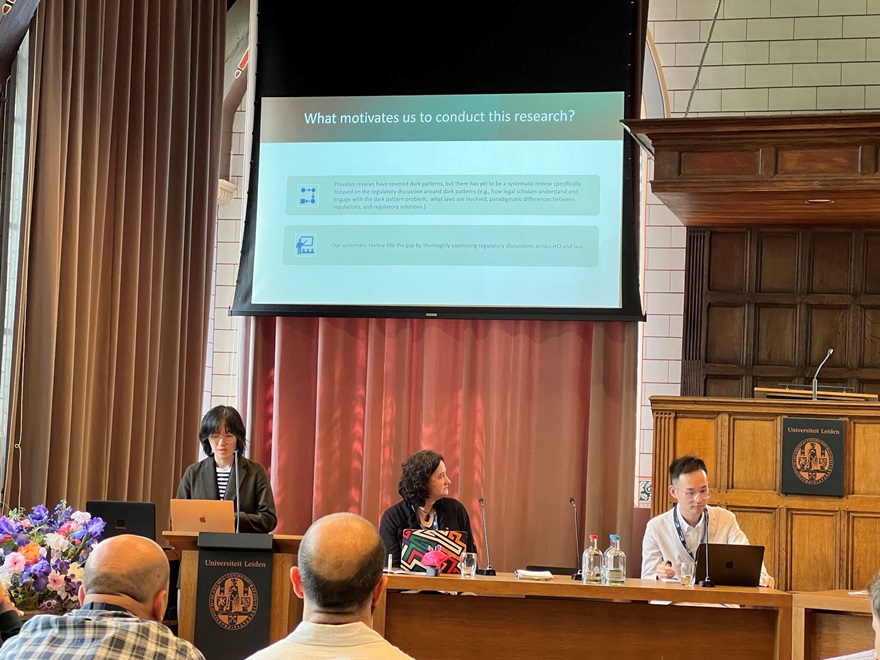
Paper session: Digital Vulnerability Exploitation (photo by Weiwei Yi) -
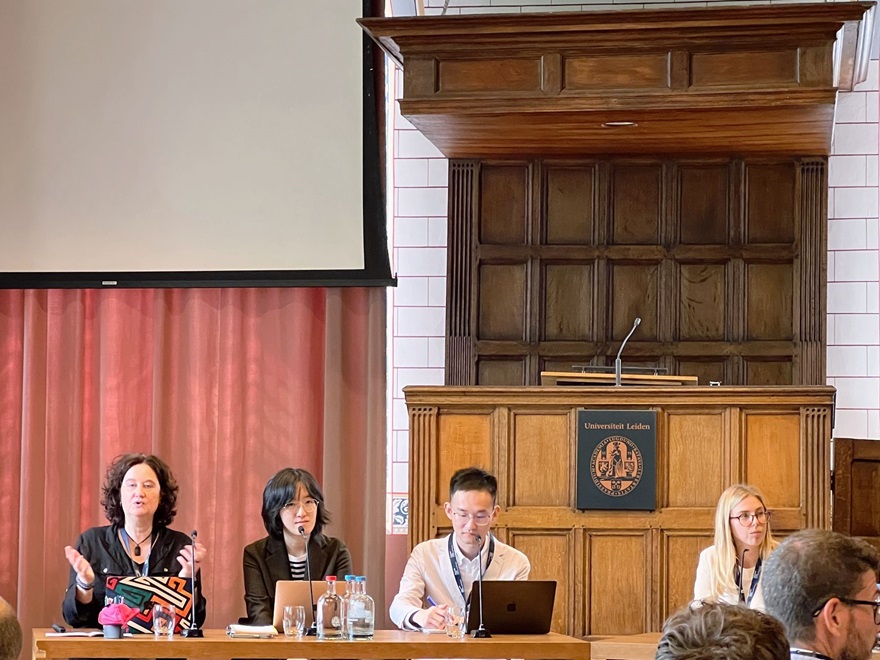
Paper session: Digital Vulnerability Exploitation (photo by Zihao Li) -
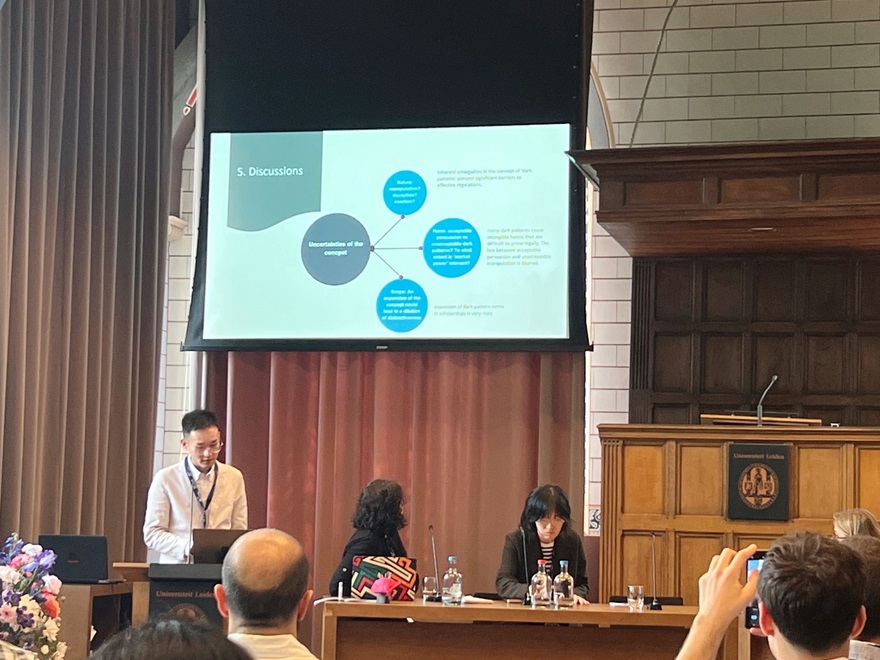
Paper session: Digital Vulnerability Exploitation (photo by Zihao Li) -
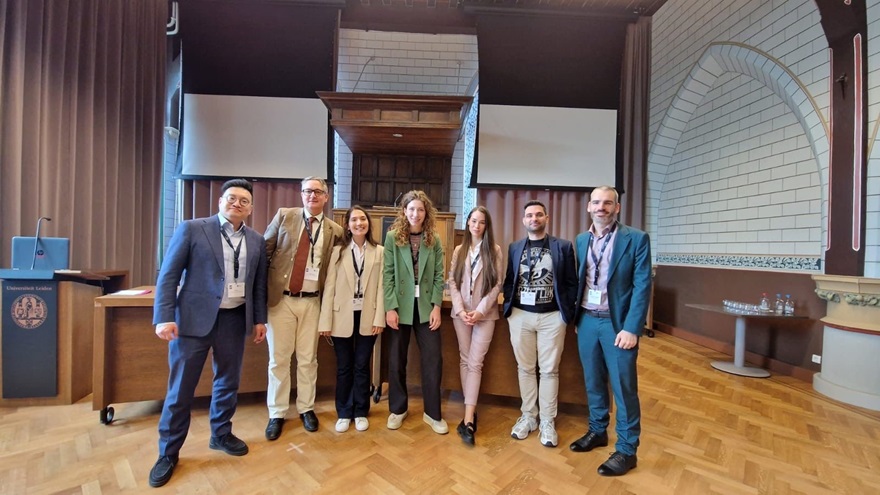
Paper session: Vulnerability (photo by Shu Li)
The conference's keynote panel discussions featured topics such as AI governance, the AI Act and data protection. Named after the conference itself and moderated by Simone van der Hof (Leiden University), Thursday’s keynote involved Roger Brownsword (University College London), Paul Nemitz (European Commission), Linett Taylor (Tilburg University) and Elettra Bietti (Northeastern University).
Friday, June 21
The second day of the conference featured two additional keynote panel discussions. The first, a hybrid panel, included insightful contributions from Eduard Fosch Villaronga (Leiden University), Timo Jakobi (Technical University Nuremberg), Joris van Hoboken, (Universiteit van Amsterdam), Mireille Hildebrandt (Vrije Universiteit Brussel) and Marcello Ienca (Technical University of Munich). Francien Dechesne (Leiden University) moderated this panel and led a productive Q&A session with the audience on the impact of digital technologies on fundamental rights. The second keynote panel, which was moderated by Gianclaudio Malgieri (Leiden University), fostered a comprehensive discussion on the differences in AI governance between Europe and North America, with a specific focus on the AI Act. This panel benefited from the diverse interventions of Gloria Gonzalez Fuster (Vrije Universiteit Brussel), Hielke Hijmans (Belgian Data Protection Authority), Eleni Kosta (Tilburg University), Frederik Zuiderveen Borgesius (Radboud University) and Ignacio Cofone (McGill University).
-
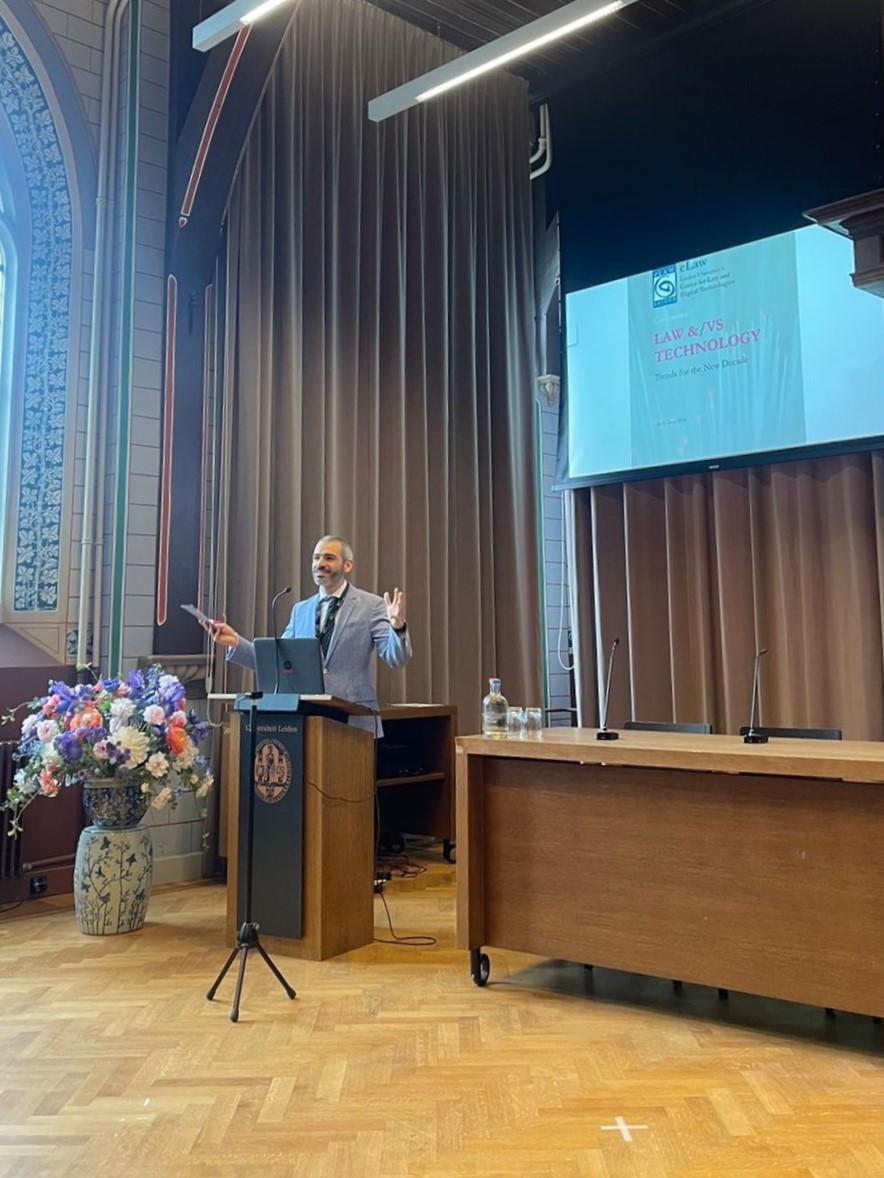
A word of welcome from Gianclaudio Malgieri -

Keynote panel: 'Technology beyond the law: tech challenges to fundamental rights' -
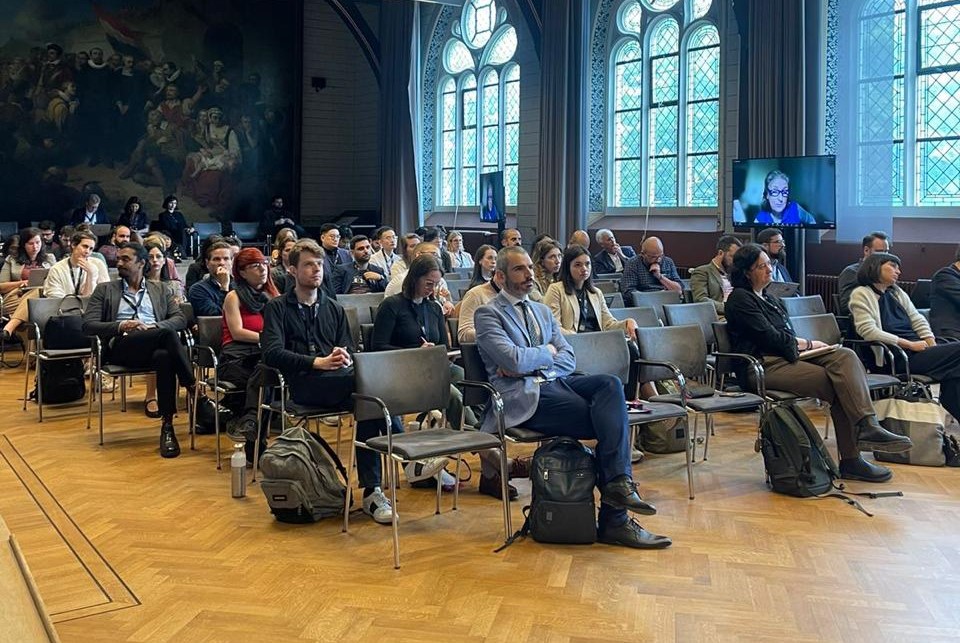
Keynote panel: 'Technology beyond the law: tech challenges to fundamental rights' -

Paper session: AI governance -

Paper session: Privacy and data protection -
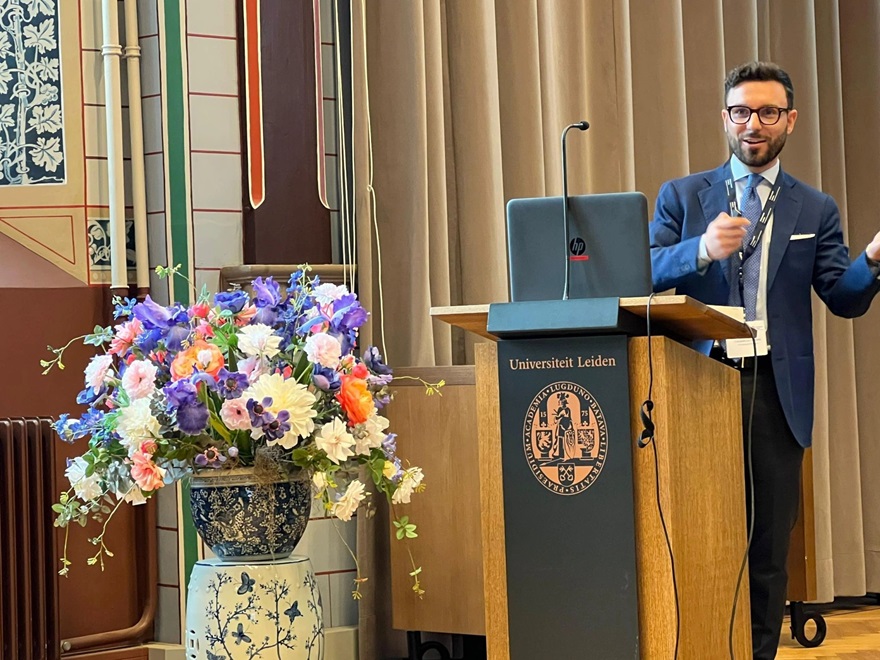
Paper session: AI, and Machines (photo by Federico Carmelo La Vattiata) -
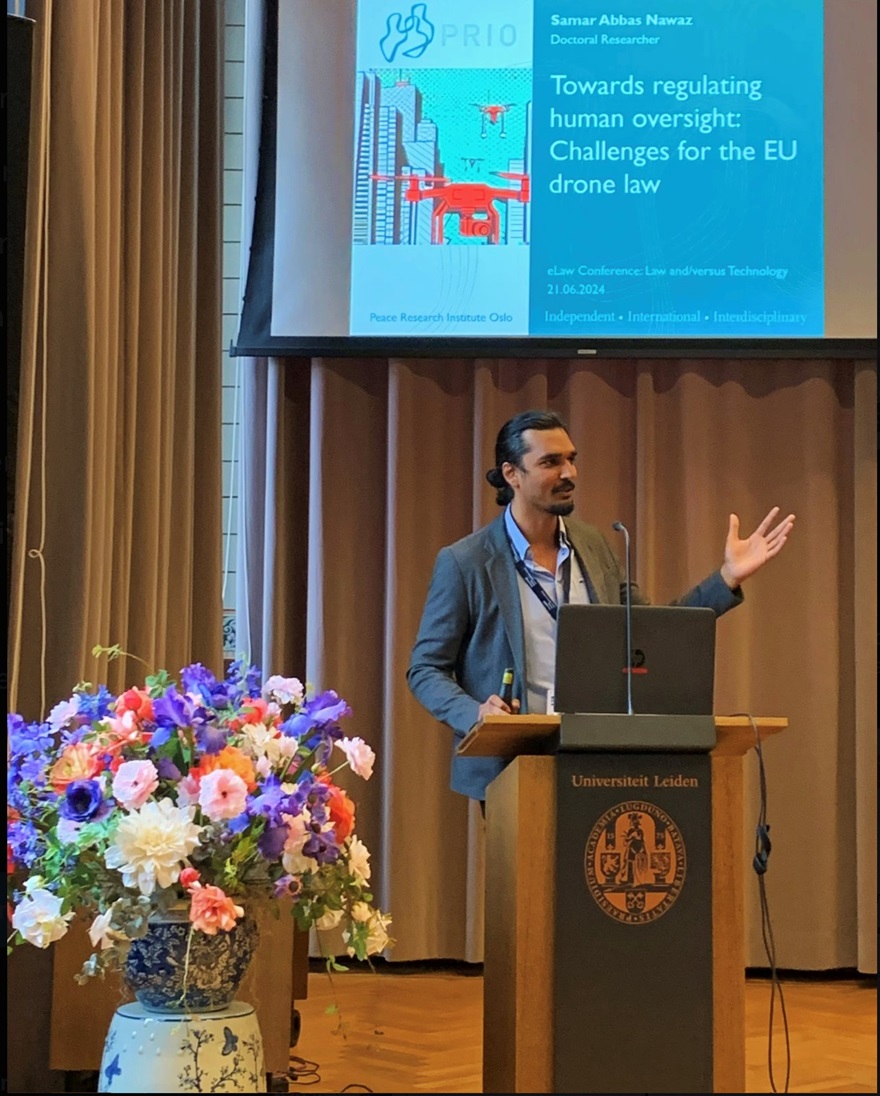
Paper session: AI, and Machines (photo by Samar Nawaz) -
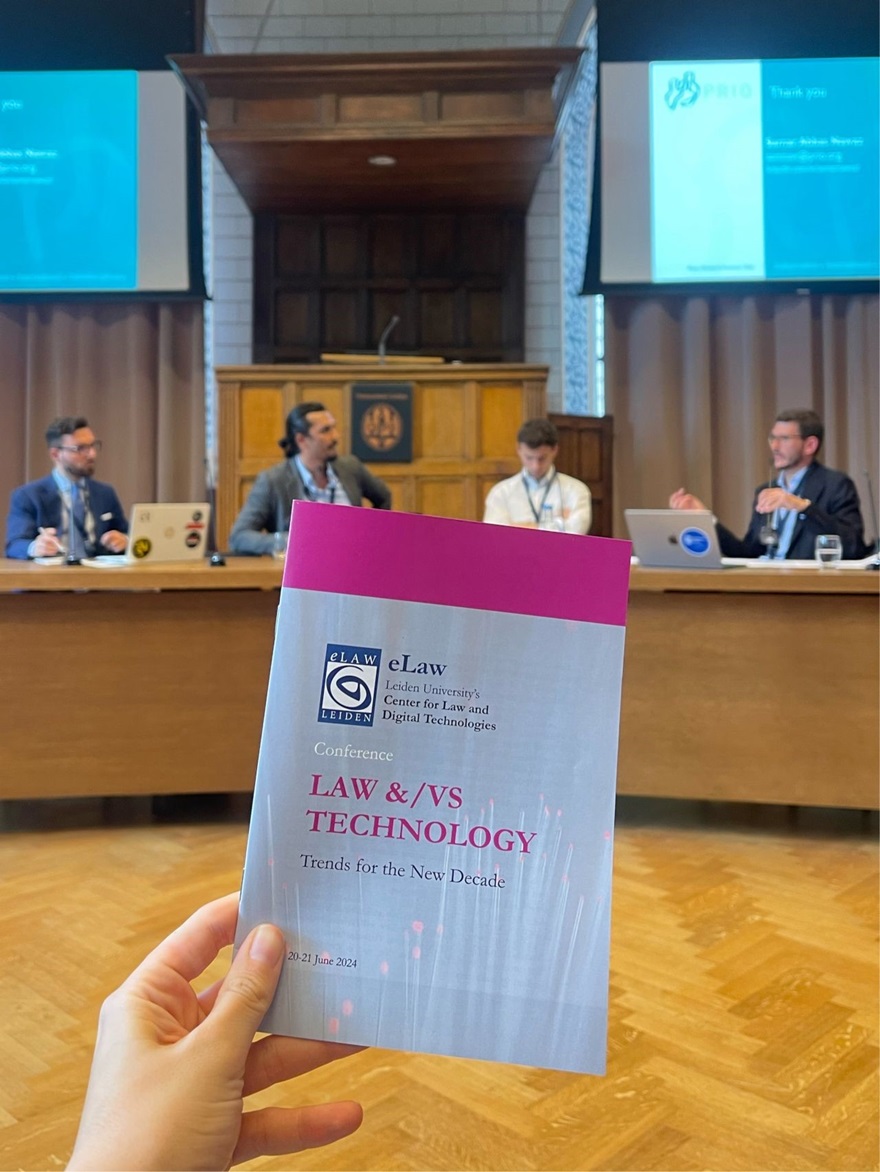
Paper session: AI, and Machines -
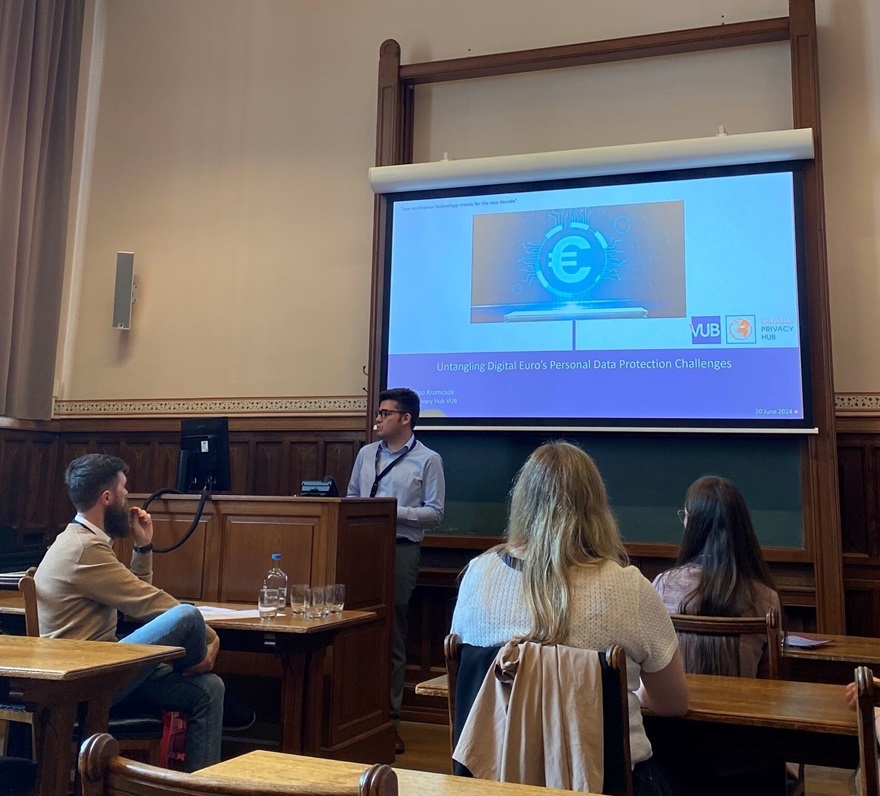
Paper session: Data Protection (photo by Pablo Trigo Kramcsák) -
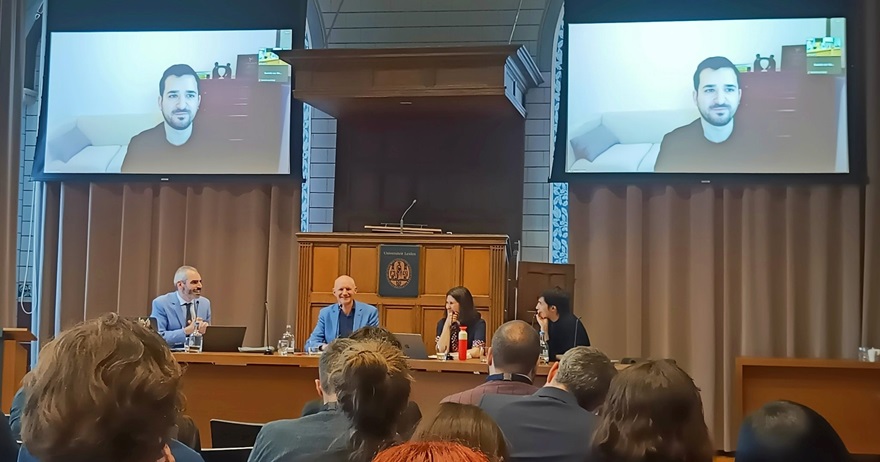
Keynote panel: “Data Protection at the Challenge of the AI (Act)” (photo by Samar Nawaz)
The insightful panel discussions held during the symposium highlighted the need for interdisciplinary communication and an increased focus on both the developing interpretations of digital laws and on these frameworks’ intersections.
Alumni panel
In parallel to the afternoon’s paper sessions, eLaw Centre for Law and Digital Technologies organized an extraordinary panel discussion. Alumni from the advanced LL.M program Law and Digital Technologies engaged with current students, answering questions and sharing insights on life after graduation and potential career paths. The panel marked the beginning of a series of commemorative events celebrating the 10th anniversary the advanced LLM, including a reunion dinner and activities designed for alumni to rediscover the city of Leiden.
-
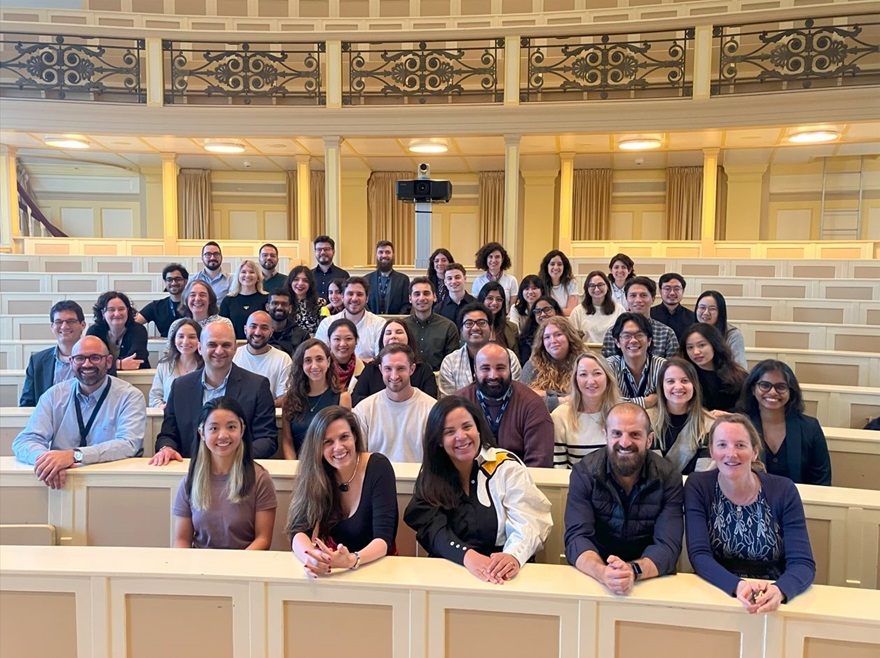
Alumni Advanced LL.M Law and Digital Technologies -
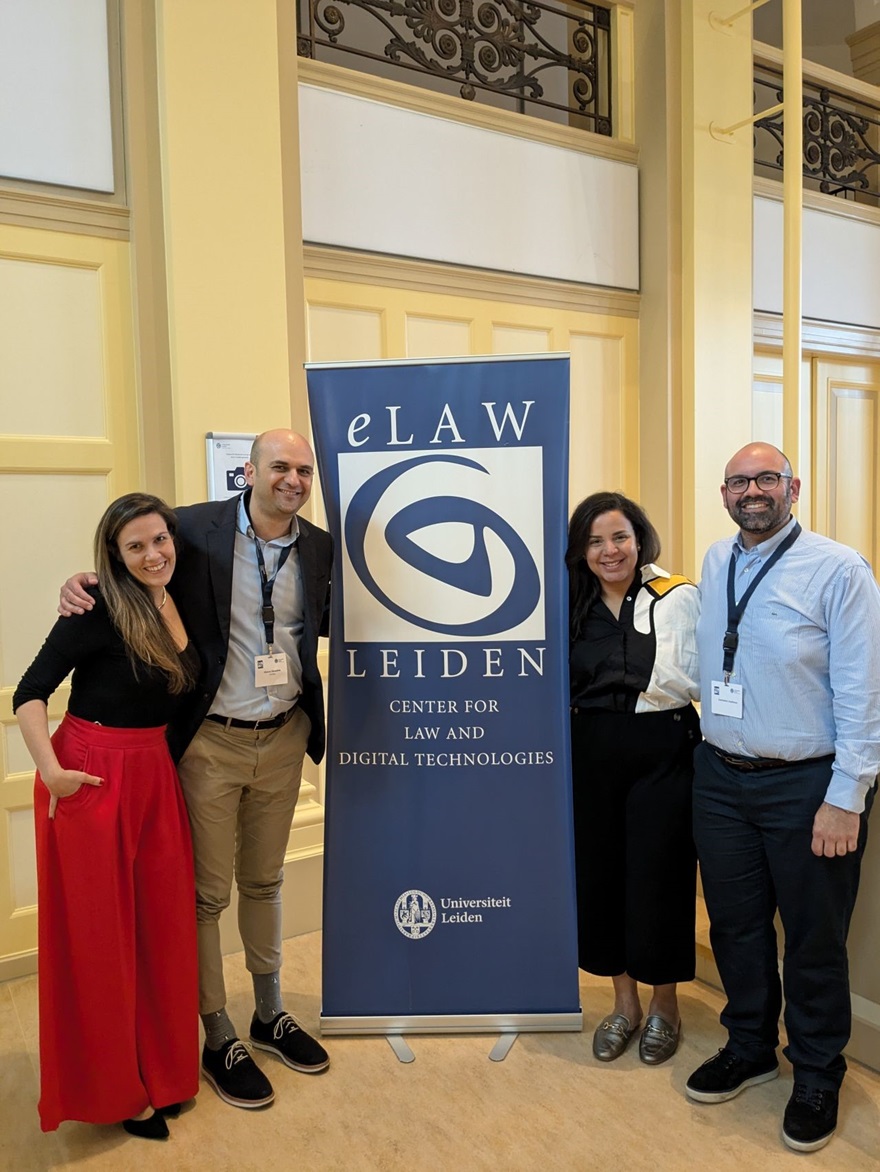
Alumni Advanced LL.M Law and Digital Technologies (photo by Marco Mendola) -
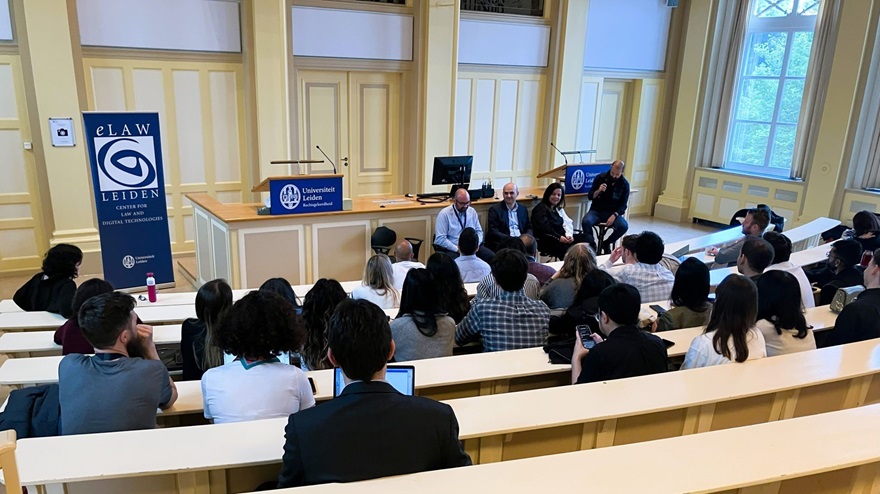
Alumni panel discussion (photo by Marco Mendola)
The conference’s success can be credited to the dedication of Leiden Law School’s eLaw department members, who actively moderated the panels, provided feedback on the papers submitted and engaged with participants. Special gratitude goes out to the panel moderators, i.e., Bart Custers, Simone van der Hof, Eduard Fosch Villaronga, Henning Lahmann, Alan Sears, Gavin Robison, Francien Dechesne, Gera van Duijvenvoorde, Bart Schermer, Carlotta Rigotti, Andreas Häuselmann. Selected contributions, papers and proceedings will appear in a special Computer Law and Security Review.
